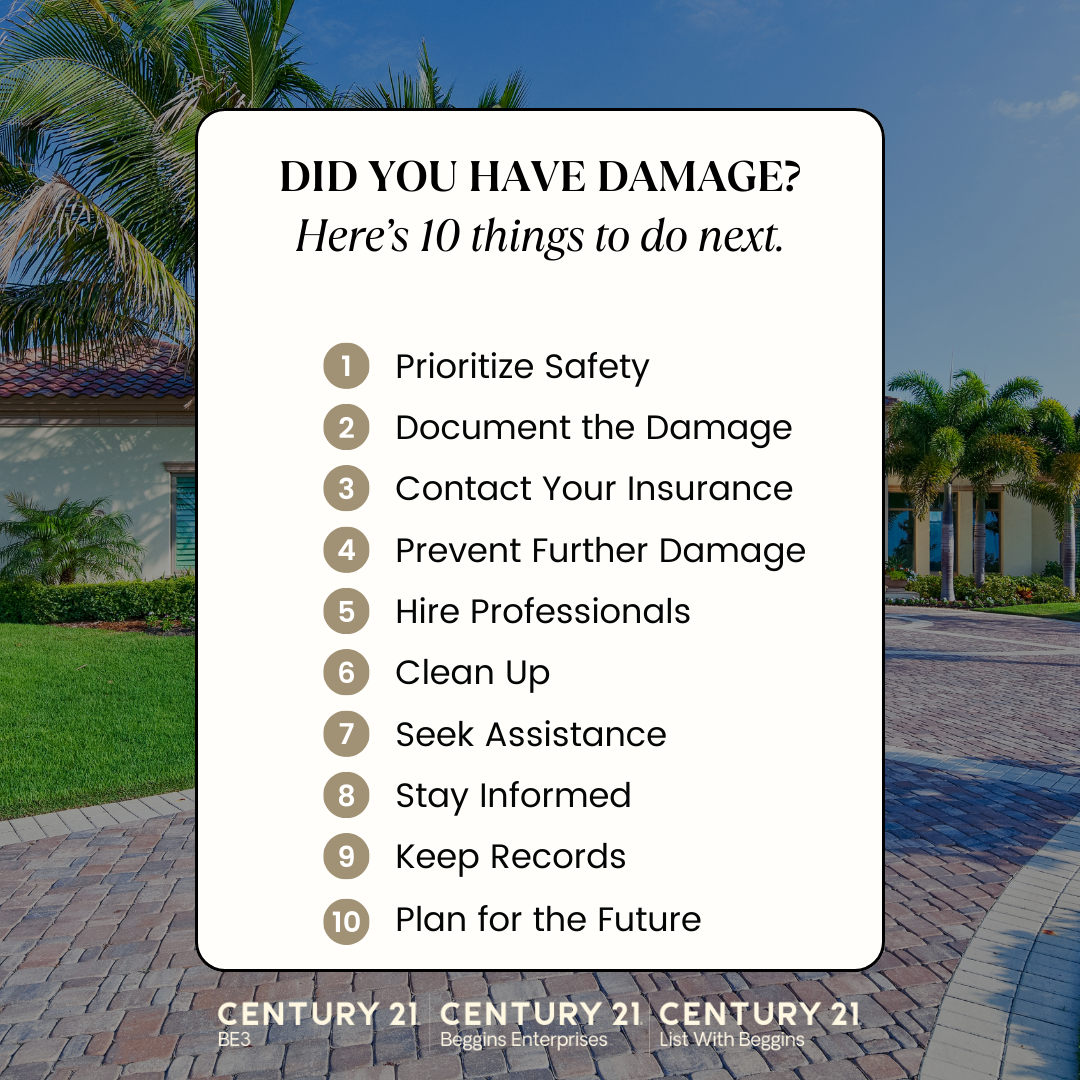Dealing with the aftermath of a hurricane can be daunting, especially when your home has suffered damage. Here’s a step-by-step guide on what to do if you find yourself in this situation:
1. Prioritize Safety
-
Evacuate if it’s unsafe. Do not re-enter your home until local officials have declared it’s safe to do so.
-
Be cautious of downed power lines and report them immediately.
-
Use battery-operated flashlights, not candles, to prevent fire hazards.
-
Turn off gas, water, and electricity if you suspect damage to them.
2. Document the Damage
-
Before making any repairs, take detailed photos and videos of all damage.
-
Make a list of damaged or lost items, including their purchase date and value.
-
Save any receipts related to home repairs or living expenses if you’ve had to relocate.
3. Contact Your Insurance Company
-
Report the damage to your homeowner’s insurance agent as soon as possible.
-
Find out if you’re eligible for any immediate relief or advance payments.
-
Understand your deductible and what is/isn’t covered.
-
If you have flood insurance and experienced flooding, contact your flood insurance provider separately.
4. Prevent Further Damage
-
Make temporary repairs to prevent further damage, such as covering broken windows or leaking roofs with tarps.
-
Keep receipts for any materials or services you purchase.
5. Hire Professionals
-
For significant repairs, hire licensed and bonded professionals.
-
Always research contractors to ensure they are reputable. Watch out for post-disaster scams.
-
Get written estimates for all repairs.
6. Clean Up
-
Remove water-logged and mold-prone items.
-
Dry out areas with fans and dehumidifiers.
-
Wear protective gear, like gloves and masks, when cleaning to prevent exposure to mold and other contaminants.
7. Seek Assistance
-
Register for assistance with the Federal Emergency Management Agency (FEMA) if available.
-
Check for local disaster relief services, such as shelters, food, and medical attention.
-
Reach out to local community groups or churches that may be offering assistance.
8. Stay Informed
-
Listen to local news or a battery-operated radio for updates about safety, weather forecasts, and aid.
-
Follow any boil water advisories or other safety directives.
9. Keep Records
-
Document all conversations, emails, and correspondence with your insurance company.
-
Save all receipts for repairs, replacements, accommodations, meals, and other related expenses.
10. Plan for the Future
-
Once you’ve dealt with the immediate aftermath, consider how to better protect your home from future hurricanes, such as installing storm shutters or reinforcing your roof.
-
Review and possibly adjust your insurance coverage based on your recent experience.
Lastly, remember to lean on your community during this time. Natural disasters can be emotionally taxing, and you don’t have to face the aftermath alone. Seek emotional support from friends, family, or professionals when needed.


 Facebook
Facebook
 Twitter
Twitter
 Pinterest
Pinterest
 Copy Link
Copy Link

